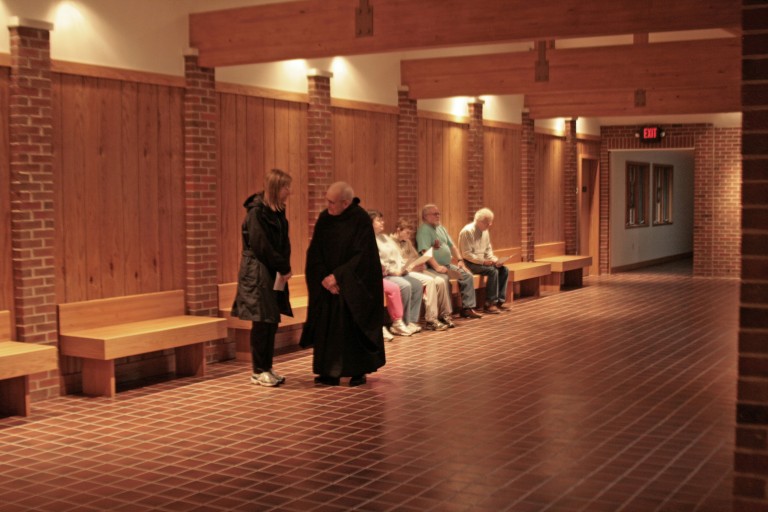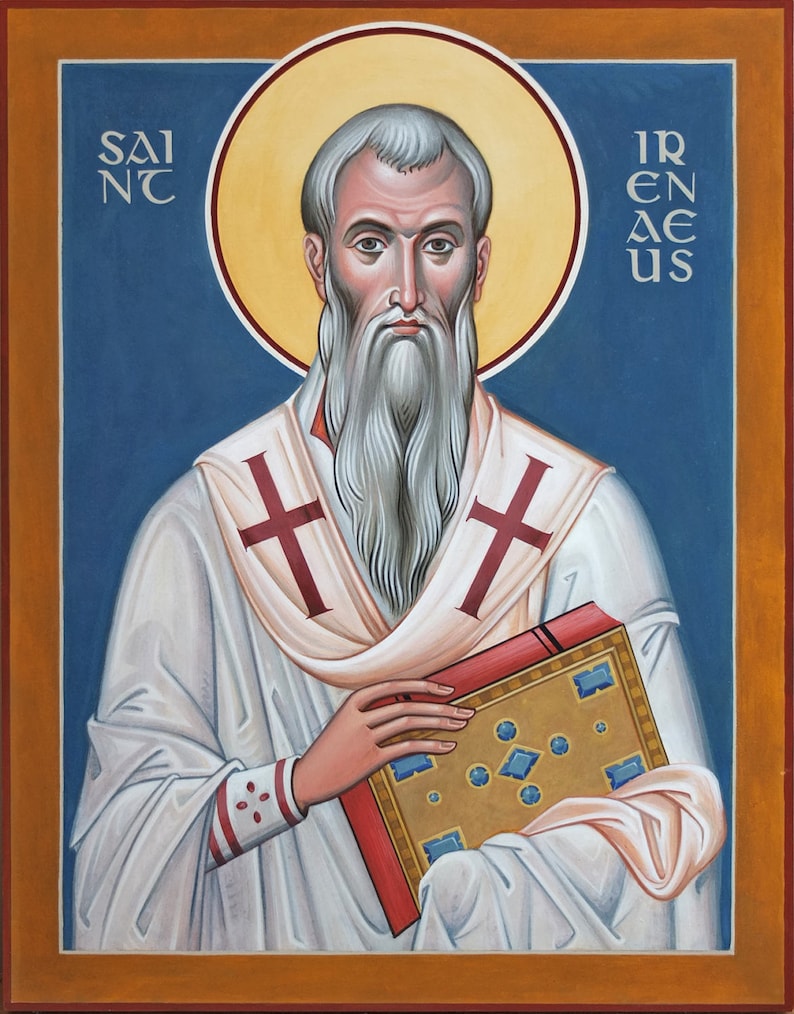Lord Jesus Christ, you stretched out your arms of love on the hard wood of the cross that everyone might come within the reach of your saving embrace: So clothe us in your Spirit that we, reaching forth our hands in love, may bring those who do not know you to the knowledge and love of you; for the honor of your Name. Amen. (BCP)
Jesus said, "Now the Son of Man has been glorified, and God has been glorified in him.”
What does it mean to live to the glory of God? How is such glory reflected in our lives?
I think it has to do with love as Jesus also said in that same passage from the Gospel of John – “I give you a new commandment, that you love one another. Just as I have loved you, you also should love one another.”
It is in how we live our life through the love that Jesus gave.
St. Irenaeus of Lyons (a second century Bishop in France) wrote: “Our Lord Jesus Christ, through his transcendent love, became what we are, that he might bring us to be what he is himself.”
Jesus showed us the glory of God, by the love he shared in his life (with disciples, strangers, the sick, the forgotten), the sacrifices he made, in how he lived & became one of us, so that we might follow what he did and continue his ministry in the world with our lives.
St. Irenaeus also wrote: “The Glory of God is a Human Being fully alive; and the life of humanity consists in beholding God.” (Against Heresies, Book 4, 20:7) As I read Irenaeus’ writings, his notion of life, is our connection to our creator, where we discover ways of living more truly and fully. Whose fulfillment is the Word of God, that is Jesus.
That vision of God, beholding God, is what we do when we consider Jesus and what he calls us to do.
Dirk Willems was born in the Netherlands in the 16th Century and was baptized as a young man. His devotion to his Dutch Anapabtist faith (which today includes Mennonites, Brethren, and Amish) and the adult baptism of others in his house led to his arrest by the authorities. For the RC Church condemned him for his faith.
While in prison, Willems escaped using a rope, to lower himself down onto the frozen moat. A guard noticed his escape and chased him but he broke through the ice and yelled for help as he struggled in the icy water. Willems turned back to save the life of his pursuer and was recaptured. He was burned at the stake on May 16, 1569.
Dirk Willems faith compelled him to save the life of his pursuer. Out of love he acted. And I believe his life reflects the glory of God. Jesus calls us to live out of love. There may be consequences for our actions, but our conscience will be clear.
Who we are as disciples of Jesus is defined by that love we give to others.
In our first reading from the Acts of the Apostles, Peter responds to the criticism that he has begun reaching out to Gentiles, by explaining how it was that the Holy Spirit guided him to this work.
“The Spirit told me to go with them and not to make a distinction between them and us. And as I began to speak, the Holy Spirit fell upon them just as it had upon us at the beginning. And I remembered the word of the Lord, how he had said, `John baptized with water, but you will be baptized with the Holy Spirit.' If then God gave them the same gift that he gave us when we believed in the Lord Jesus Christ, who was I that I could hinder God?"
Peter is not only talking about the faith, but about love too. The Holy Spirit helped him see that he shouldn’t be making a distinction (us vs. them), that if they [gentiles/uncircumcised] were called to receive the same gift as he has, he needed to respond in faith and love to them.
Peter’s response was to bring the glory of God to Gentiles and Jews alike.
Mary Sumner was born in England & she was married to an Anglican priest in 1848 – her life was active not only in her home, raising three children, she helped in the parish by providing music and Bible classes.
In 1876, when her eldest daughter Margaret gave birth to her child, Mary remembered how difficult she had found her own motherhood. Mary was always inspired by her mother’s faith, so she planned and publicized a meeting of mothers in the parish to offer mutual support. Her husband was very supportive: “just share your heart – God will do the rest.”
Her radical understanding of God’s glory was shown in her call to the meeting, for it called women of all social classes (rich and poor) to support one another and to see motherhood as a vocation, which was unheard of in Victorian England.
In 1885, she had an opportunity to speak at a conference at a nearby diocese and the idea of a Mother’s Union based on Mary’s plan began to spread. She said “Together, by the Grace of God… we can calm each other when we are afraid; strengthen one another when we are weak; and work together to raise our children to the glory of God. Unity is strength.”
By 1892, the Mothers’ Union grew to 28 dioceses around England and in 1897 the organization began to spread to New Zealand, Canada and India…
“She was a living example of what she preached and was not afraid to speak up on difficult issues… nor afraid to act outside the social norms, to do what she believed to be right. At a time when unmarried girls with children were condemned and cast out, she cared for and protected her niece and child.” (from the Mothers’ Union History)
Mary lived her life of faith and she shared it with love, to the glory of God.
Today, you and I are called to live such full lives, beholding God in God’s bountiful creation. To give such love, breaking down the barriers that separate us, and to share with the world the faith that enlivens us like it once did for Dirk Willems, St. Peter, and Mary Sumner.
May our lives everyday reflect such glory. Let me end with Mary Sumner’s prayer from 1876:
All this day, O Lord, let me touch as many lives as possible for thee; and every life I touch, do thou by thy spirit quicken, whether through the word I speak, the prayer I breathe, or the life I live. Amen.












